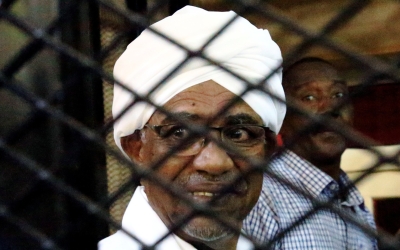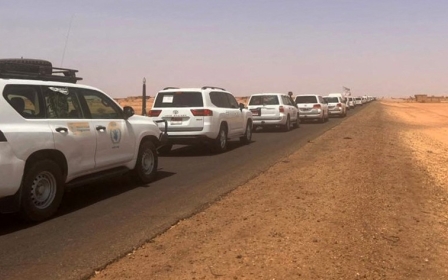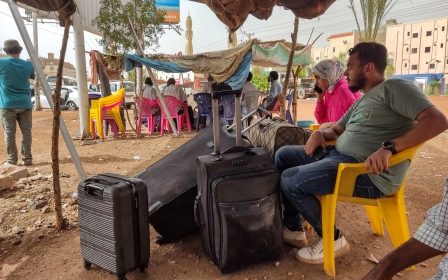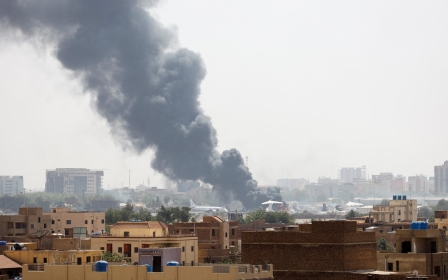Sudan turmoil: Army says Omar al-Bashir held in military hospital
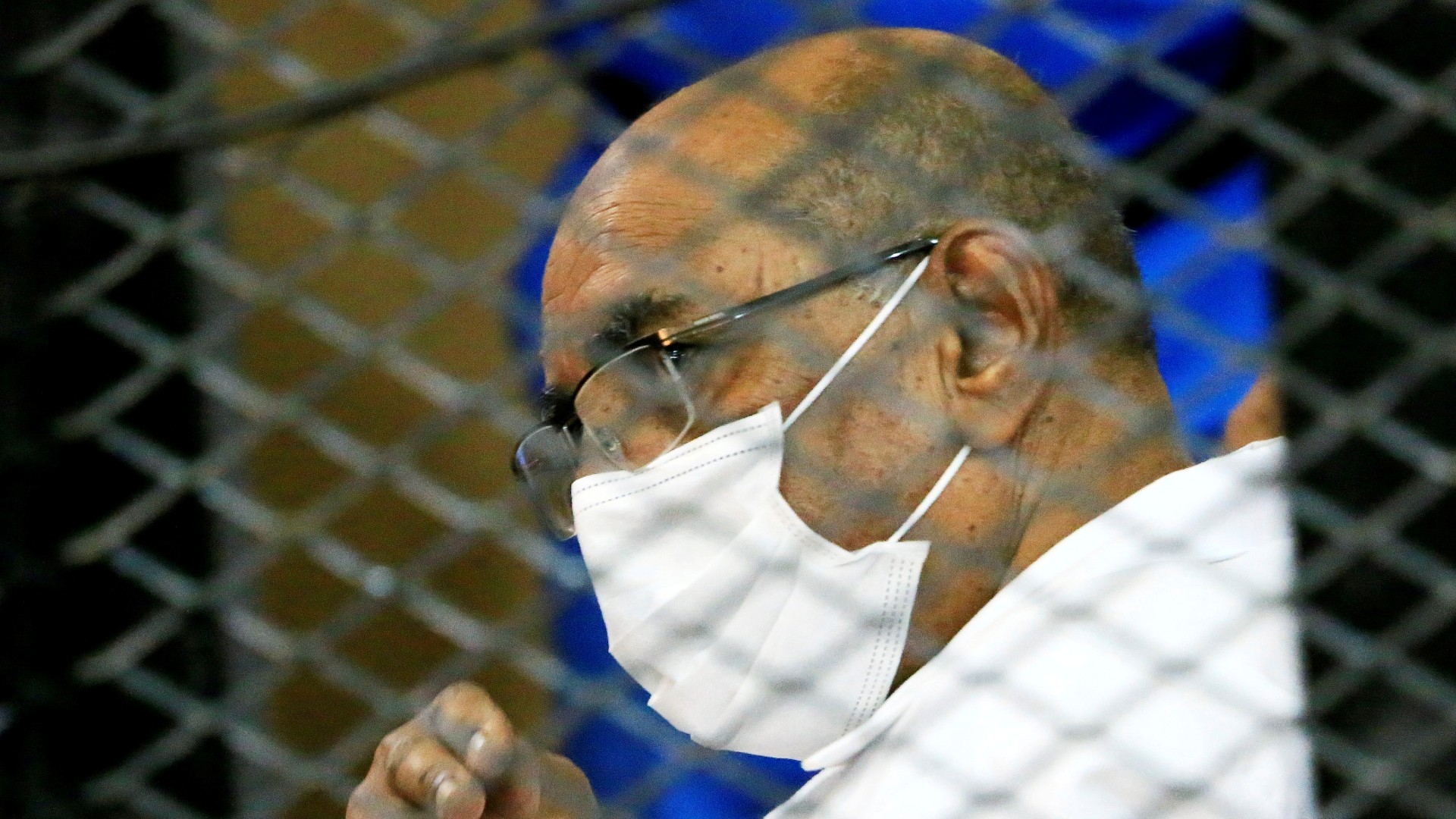
Sudan's army on Wednesday said former president Omar al-Bashir is being held in Aliaa military hospital under police custody, after days of speculation surrounding his whereabouts.
Bashir and around 30 other prisoners were moved to the hospital on the recommendation of medical staff in Kober prison before fighting between the army and the paramilitary Rapid Support Forces (RSF) broke out on 15 April, the statement said.
Doubts about Bashir's whereabouts surfaced after thousands of inmates escaped from Kober, the high-security facility he has been detained in since 2019, over the weekend.
A former minister in his government, Ali Haroun, on Tuesday announced that the former autocrat had left the prison with other ex-officials.
Both Bashir and Haroun are wanted by the International Criminal Court over charges of war crimes and other alleged atrocities in Darfur, in the west of Sudan.
New MEE newsletter: Jerusalem Dispatch
Sign up to get the latest insights and analysis on Israel-Palestine, alongside Turkey Unpacked and other MEE newsletters
Two inmates told Middle East Eye on Monday that they had escaped Kober on Sunday, along with thousands of other fellow prisoners, after fighting between the Sudanese army and RSF forces intensified around the prison. They were not able to say whether Bashir had also escaped or been moved.
Sudanese local media published a video showing prisoners leaving Kober prison and footage of clashes around it on Sunday. The video showed people in their white prison uniforms walking down an alleyway, carrying their belongings.
Prisoners had set two guard vehicles on fire and protested against the lack of food and water. MEE could not independently verify these reports.
Sources in Sudan and the US told MEE they had heard Bashir had been moved by the Sudanese military, which is led by General Abdel Fattah al-Burhan, but were also unable to confirm this information.
An anonymous police source who spoke to Sudan Post, a publication based in South Sudan, said that Bashir and some other members of his administration had been moved out of Kober prison to a safe place, after gunmen thought to be from the RSF attacked prison guards to free inmates.
Shaky ceasefire
Renewed fighting shook a new three-day ceasefire, brokered by the US and Saudi Arabia, as it entered its second day on Wednesday, with reports of fresh air strikes and the RSF claiming they have captured a major oil refinery and the associated Garri power plant, more than 70km north of Khartoum.
This ceasefire is the latest failed attempt to silence guns in Sudan since the tensions over plans to fold the RSF into the army as part of a transitional political deal broke into violence on 15 April.
"The pause was not fully upheld, with attacks on headquarters, attempts to gain ground, air strikes, and explosions in different areas of the capital," UN Special Representative Volker Perthes told the United Nations Security Council on Tuesday.
Gunfire and explosions were reported after nightfall in Khartoum's neighbouring city Omdurman, where the army used drones to target RSF positions, and in the capital's north, where fighter jets reportedly struck RSF vehicles.
The fighting has killed at least 400 people and destroyed several neighbourhoods in Khartoum. Thousands of Sudanese and foreigners have already fled the violence, with many more attempting to leave Sudan on Wednesday as fighting eased in some parts.
A boat carrying nearly 1,674 civilians from more than 50 countries, including 13 Saudi nationals, arrived in Saudi Arabia early on Wednesday, the kingdom's foreign ministry said.
Other evacuation efforts continued, with a British military transport plane carrying 40 civilians landing in Cyprus on Tuesday.
Sudanese civilians, meanwhile, are fleeing by road to places like Wad Madani southeast of Khartoum, Port Sudan on the Red Sea coast, and Gedaref, near the Ethiopian border in the east of the country. People are also heading to rural areas of al-Jazira state and going north in their thousands to the border with Egypt.
Joyce Msuya, the assistant secretary-general for humanitarian affairs, said the UN has received reports "of tens of thousands of people arriving in the Central African Republic, Chad, Egypt, Ethiopia and South Sudan".
Local media has reported that more than 10,000 people have crossed the border into South Sudan, while 10,000-20,000 are said to have fled into neighbouring Chad, which shares a 1,500km border with Sudan.
"The majority of the new arrivals are women and children, who have had to flee with only what they could carry and are now sheltering in the open," a spokesperson for the United Nations refugee agency (UNHCR) told MEE.
Sudanese fleeing the fighting have reported that bus drivers have increased prices, sometimes tenfold, to the border with Egypt or Port Sudan.
The cost for a bus ride to the border crossing with Egypt reach $400 per person on Monday, up from $66 over the weekend, according to an MEE correspondent in Sudan.
Middle East Eye delivers independent and unrivalled coverage and analysis of the Middle East, North Africa and beyond. To learn more about republishing this content and the associated fees, please fill out this form. More about MEE can be found here.


